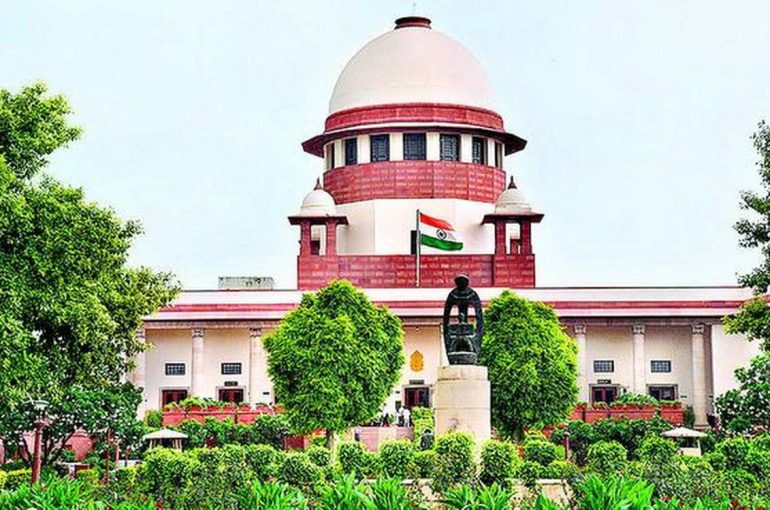Supreme Court Upholds the Sanctity of Commercial Contracts

In a recent judgement passed by the Supreme Court of India titled SEPCO Electric Power Construction Corporation v. GMR Kamalanga Energy Ltd., (Citation: 2025 SCC OnLine SC 2088 (or 2025 INSC 1171).) the Supreme Court, hearing an appeal against the Orissa High Court’s Division Bench judgment, upheld the High Court’s decision to set aside the Arbitral Award which was originally in favour of SEPCO.
The Supreme Court of India held that parties have the power in deciding the terms of contract and that there is a sanctity of commercial contracts that must be recognised by all parties. The Supreme Court while deciding this matter was of the opinion that there are limits on the powers of the arbitral tribunal under the Arbitration and Conciliation Act and that the arbitrator must act within the scope and ambit of the contract and not travel beyond its terms. This ruling significantly upholds the impact of commercial agreements that parties have agreed to.
The dispute in this case arose from an EPC contract for a thermal power plant with the key issue was whether GMR Kamalanga had its right to enforce a contractual clause because it failed to give written notice for certain claims that it was making to the other party namely SEPCO Electric.
As the parties had agreed to dispute resolution by arbitration, the matter went up before the Arbitral Tribunal. The Arbitral Tribunal after hearing both parties awarded a substantial amount of nearly 995 crores in favour of SEPCO. The basis for passing this order was that the Arbitral Tribunal accepted SEPCO’s reliance on an email exchange between the parties namely SEPCO and GMR. Relying on this exchange of email, the Tribunal felt that GMR failed to fulfil the notice requirement. GMR went in appeal for setting aside the arbitral award. The High Court, after hearing the parties set aside the arbitral award and the matter came up before the Apex Court. The Apex Court also agreed with the High Court’s reasoning and set aside the arbitral award.
The Supreme Court of India setting aside the award, held the following:
- Arbitrators are bound by the contract: The Court emphasized that an arbitral tribunal is a creature of the contract and must decide disputes in accordance with the terms of the contract (as mandated by Section 28(3) of the Arbitration Act).
- “No Oral Modification” (NOM) Clauses: Where a contract explicitly requires modifications or waivers to be in written form, an arbitral tribunal cannot, through an inference of “waiver” or “estoppel” based on informal communications (like an email), effectively rewrite or violate the express terms of the agreement.
- Scope of Judicial Intervention (Patent Illegality): The ruling affirms that a court can intervene under Section 34/37 of the Act if the arbitral award suffers from a “patent illegality” that goes to the root of the matter, such as an award that is in direct contravention of the fundamental terms of the contract
- Violation of Natural Justice (Section 18): The Court noted that the Arbitral Tribunal had applied the principle of waiver/estoppel asymmetrically. The Tribunal while allowing SEPCO’s claims by deeming the notice requirement was waived (due to a March 2012 email) and thereby rejected some of GMR’s counterclaims on the ground of lack of notice even for events occurring after March 2012. The Court held that this unequal treatment was deemed a violation of the principle of equal treatment of parties (Section 18) and a breach of the fundamental notions of justice.
The importance of this judgment is the broader implications for commercial disputes that the Court will strictly enforce the contract as written. Arbitrators have to adhere to the express terms, and they cannot invoke doctrines of equity (like waiver or estoppel) to override “No Oral Modification” clauses or rewrite the commercial understanding between the parties.
In summary, the Supreme Court ruled that the Arbitral Tribunal had exceeded its jurisdiction by traveling outside the terms of the contract and had improperly created a case of waiver/estoppel. In a similar vein, the Court held that unequal treatment of the parties by the Arbitral Tribunal amounts to violation of law .It further observed that “the Arbitral Tribunal shocked the conscience of the court by exceeding its jurisdiction and also changing the terms of the contract through a total disregard of the specific terms, it further reiterated that any award that disregards the binding precedents as laid down through numerous decisions of this Court can be set aside on grounds of violating fundamental policy of Indian law.”
The Court summarized that despite the limited scope of interference, the Division Bench was obligated to have interfered with the Arbitral Award owing to fulfilment of conditions mandating a re-appreciation of the merits of the award under Section 34 of the 1996 Act. Non interference and non-setting aside of the award would have hampered upon the fundamental policy of Indian law as well as the public policy of India. The Arbitral Tribunal, itself being a creature of the EPC Agreements, could not have Civil Appeal @ SLP (C) No.2706/2024 Page 106 of 106 travelled beyond its mandate to rewrite the constitution of its own existence through observing the condition of notice having been waived. The Supreme Court thereby set aside the arbitral award of approximately ₹995 Crores in favour of SEPCO.
SUSHILA RAM VARMA, ADVOCATE
CHIEF CONSULTANT
The Indian Lawyer & Allied Services
Please log onto our YouTube channel, The Indian Lawyer Legal Tips, to learn about various aspects of the law. Our latest Video titled “Legal Requirements for Indian Startups | Complete Q&A 2025 | Advocate Sushila Ram Varma” can be viewed at the Link below:
https://youtu.be/DCwYi1P-1xE?si=uYGMXAbmhywv3fGd





































Leave a Reply